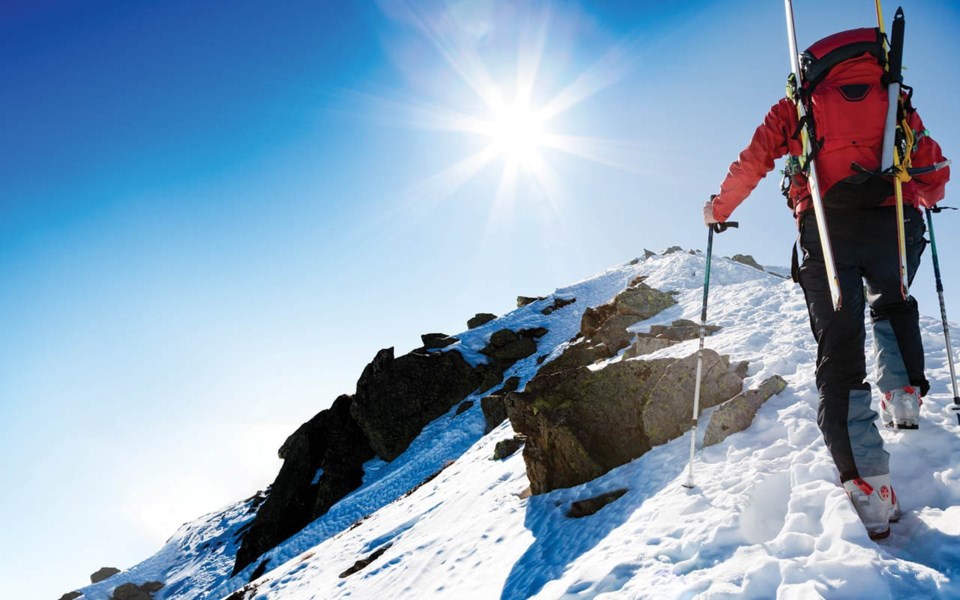It's no surprise to anyone that interest in outdoor recreation is growing.
In 2011, Joffre Lakes Provincial Park saw an estimated 52,500 visitors, while this year it's expected to see around 170,000. Down in North Vancouver, Lynn Canyon Park is expected to welcome a half a million people.
B.C.'s search-and-rescue teams—which are made up of volunteers—have experienced this growth.
According to provincial statistics, while in the year 2000, search-and-rescue teams responded to around 950 incidents; by 2017, they responded to over 1,600.
The increased pressure on search-and rescue teams is leading some to question whether their volunteer-based model is feasible in the long-term.
According to Jayson Faulkner—a prominent voice in outdoor recreation with almost 40 years of experience working in the outdoor industry—it is "not sustainable."
As with most volunteer organizations, the work of search-and-rescue teams tends to be shouldered by a core group, and they are increasingly getting burnt out.
"If you have people who are effectively doing this full time ... then those people probably should be paid for it," he said.
As chair of the Spearhead Huts Society—the non-profit behind the construction of three huts along the iconic Spearhead Traverse in Garibaldi Provincial Park—Faulkner has had significant interactions with policy makers. He said he has used the opportunity to advocate for an insurance-based model for backcountry travel, as is found in many European countries, including Switzerland and France.
Under the system, backcountry users would be required to buy insurance— meaning if you don't have it and get lost, you fork out money for rescue.
Faulkner would like to see the insurance administered by alpine clubs such as the Alpine Club of Canada or British Columbia Mountaineering Association. (Faulkner has long been involved with the Alpine Club of Canada.)
"It's a way of getting people much more engaged," said Faulkner. "If they are part of an organization, like an alpine club, you have a chance to educate them" on how to be prepared and make smart decisions.
While acknowledging that the idea is controversial, Faulkner said there is support, particularly among the guiding community.
"Whenever I talk to (guides), they're like 'yeah, this is crazy, that it's a volunteer thing. It doesn't make sense.'"
Faulkner also thinks professionalizing search-and-rescue operations could improve the service.
"There's a limit to what you can ask volunteers to do," he said. "Whereas, if someone is paid—and they are a professional—there is a different standard of expectation that you can ask of them."
The idea, however, would involve introducing something search-and-rescue teams have long been dead-set against: fee for rescue.
According to Chris Kelly, president of the BC Search and Rescue Association (BCSARA), the organization that represents search-and-rescue teams around the province, the prospect of a bill discourages people from calling for help, leading to delays that can increase the likelihood of bad outcomes.
He also said that the current model works well in that there are search-and-rescue teams across the province with first-hand knowledge of their region.
"If you went to a professionalized model, there is just no way that the taxpayer could afford to pay for 2,500 (SAR volunteers) around the province," said Kelly.
In Kelly's estimation, what is needed is secure financing for search-and-rescue teams.
The BCSARA is currently looking for the province to commit to a finance model that would provide long-term funding for teams and save them the onerous work of applying for government grants each and every year.
Faulkner said that while he understands the concerns of search and rescue regarding fee for rescue, he thinks that we have reached a point where disincentives are necessary.
Over the years, he's noticed an alarming trend of frivolous calls and woefully unprepared hikers. He said that not having any financial penalty may be sending the wrong message.
"I think it's something we have to come to grips with," he explained. "There is personal responsibility. If I make a bad decision driving my car, I have to pay a deductible at least."




